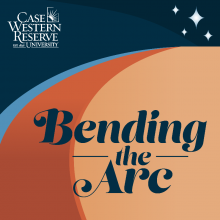0
Video
Community:
May 20, 2021
Based off of data that Ohio has high rates of infant mortality, housing authorities there are working to address this concern, which disproportionately affects people of color. Under different initiatives, the Akron and Columbus Metropolitan Housing Authorities collaborate with cross-sector partners like mayor’s offices and public health officials to improve outcomes. Panelists will describe their efforts, tactics to reach at-risk families, and ways to fund the work.
Authored by: CLPHA
Topics: Advocacy, Child welfare, Community development, Health, Healthy homes, Legislation & Policy, Pre-natal, Racial inequalities
 Shared by Housing Is
Shared by Housing Is
Housing Is posted a
on May 20, 2021
Based off of data that Ohio has high rates of infant mortality, housing authorities there are working to address this concern, which disproportionately affects people of color.
0
Video
Community:
May 18, 2021
As public housing authorities have worked to keep residents and staff safe from COVID-19, they have turned from focusing on emergency response to longer-term solutions. Sub-grantees from CLPHA’s partnership with the Center for Disaster Philanthropy share how they have been implementing initiatives to counter the digital divide that has only been exacerbated by the pandemic.
Authored by: CLPHA
Topics: Advocacy, Broadband, Community development, Education, Low-income
 Shared by Housing Is
Shared by Housing Is
Housing Is posted a
on May 18, 2021
As public housing authorities have worked to keep residents and staff safe from COVID-19, they have turned from focusing on emergency response to longer-term solutions.
0
Video
Community:
May 18, 2021
Long before the pandemic forced virtual learning and digital connections, public housing authorities have been working to address unequal access to the internet and devices. Recent provisions in COVID-19 relief packages have begun to provide for temporary assistance for low-income individuals and families, and PHAs and legislators are pushing for more permanent supports. Panelists will discuss recently enacted funds, as well as introduced legislation.
Authored by: CLPHA
Topics: Advocacy, Attendance, Broadband, CLPHA, Community development, Education, Legislation & Policy
 Shared by Housing Is
Shared by Housing Is
Housing Is posted a
on May 18, 2021
Long before the pandemic forced virtual learning and digital connections, public housing authorities have been working to address unequal access to the internet and devices.
0
Podcast
Community:
Jan 13, 2021
On a day-to-day basis, vulnerable populations suffer from inequities in health, wealth, and education. These same people are then disproportionately impacted by catastrophes ranging from hurricanes to COVID-19, which only serve to underline the great and urgent need for equity across race, gender, and income. In the latest episode of The Intersect, Madeline Colety and Lorine Giangola discuss how Abt’s housing and resilience work is helping clients promote equity.
Authored by: Madeline Colety & Lorine Giangola for ABT ASSOCIATES
Topics: Advocacy, Community development, Education, Food insecurity, Health, Healthy homes, Homelessness, Housing, Low-income, Partnerships, Racial inequalities
 Shared by Housing Is
Shared by Housing Is
Housing Is posted a
on Jan 14, 2021
Madeline Colety & Lorine Giangola for ABT ASSOCIATES
On a day-to-day basis, vulnerable populations suffer from inequities in health, wealth, and education.
0
Podcast
Community:
Nov 23, 2020
“Bending the Arc” explores the everyday work of creating inclusive, equitable and racially just communities. This podcast spotlights bold thinking and action by creative, passionate, experienced thinkers and actors from cities and communities around the US and Canada. In this new episode we talk with Dr. Clinton Boyd, Jr., a Postdoctoral Associate at the Samuel Dubois Cook Center on Social Equity at Duke University. In our conversation we touch on a wide range of topics including our personal journeys as Black fathers, the undervaluing of Black men in general versus the idolizing of Black male athletes and entertainers, and what Clinton has learned from his research, including the Dads2Kids home visiting project. Clinton and Dr. Deirdre Oakley of Georgia State University co-authored an essay for the What Works volume on the role of Black fathers in mixed-income communities.
Authored by: National Initiative on Mixed-Income Communities for CASE WESTERN RESERVE UNIVERSITY
Topics: Advocacy, Community development, Racial inequalities, Youth
 Shared by Housing Is
Shared by Housing Is
Housing Is posted a
on Jan 12, 2021
National Initiative on Mixed-Income Communities for CASE WESTERN RESERVE UNIVERSITY
“Bending the Arc” explores the everyday work of creating inclusive, equitable and racially just communities. This podcast spotlights bold thinking and action by creative, passionate, experienced thinkers and actors from cities and communities around the US and Canada.
0
Communications
Community: CLPHA COVID-19 Coordination
Mar 23, 2020
Special edition of CLPHA newsletter detailing the organization's efforts in response to COVID-19.
Authored by: CLPHA
Topics: Advocacy, CLPHA, Communications, Health, Seniors
 Shared by Steve Lucas
Shared by Steve Lucas
Steve Lucas posted a
on Mar 23, 2020
Special edition of CLPHA newsletter detailing the organization's efforts in response to COVID-19.
0
Webinar
Community:
Feb 12, 2020
A discussion with attorney Alex Elson from the National Student Legal Defense Network and director of FAIL STATE, Alex Shebanow, to talk about predatory for-profit institutions and how that affects low income residents.
About the film:
Over five years in the making, FAIL STATE investigates the for-profit college industry and the decades-long reports of student loan abuse within the sector. The film’s central thesis: aided by a cabal of politicians, nationwide disinvestment in public colleges and universities, and an unscrupulous desire to maximize profits at all costs, for-profit colleges have exploited millions of low-income and minority students, leaving them with worthless degrees and drowning in student loan debt. With echoes of the subprime mortgage crisis, director Alexander Shebanow traces the rise of the for-profit college industry in American higher education and uncovers a story that the Los Angeles Times calls “truly eye-opening and crucial.” The film premiered to sold-out shows at DOC NYC, SXSW EDU, Cleveland International, and debuted on STARZ in December 2018. Director Alexander Shebanow and Executive Producer Dan Rather were awarded the 2019 William Randolph Hearst Award for Outstanding Professional Media Service for their work on FAIL STATE.
Authored by: CLPHA
Topics: Advocacy, CLPHA, Education, Housing Is Working Group, Legislation & Policy, Low-income, Post-secondary
 Shared by Abra Lyons-Warren
Shared by Abra Lyons-Warren
Abra Lyons-Warren posted a
on Feb 12, 2020
A discussion with attorney Alex Elson from the National Student Legal Defense Network and director of FAIL STATE, Alex Shebanow, to talk about predatory for-profit institutions and how that affects low income residents.
About the film:
Over five years in the making, FAIL STATE investigates the fo
0
Policy Brief
Community:
Dec 4, 2019

In California, more than 3.7 million students were eligible for free or reduced priced school meals in the 2017-2018 school year. For many of those students, school meals are the primary source of regular access to healthy food. When the bell rings at 3:00 or lets out for summer break, many of those students go home to nutritional uncertainty or high-calorie, low-nutrient foods.
For many low-income families, the out-of-school-time food access gap increases family stress: limited budgets are stretched further to cover food, rent, utilities, transportation, medications, and chidcare costs. For very young children, food insecurity can negatively impact brain and physical development. For children of all ages, disrupted access to healthy food can impact behavior, increase risk of obesity, make it harder to concentrate, or exacerbate existing healthy conditions like type 2 diabetes. The impact is not limited to summer, and can lead to a rocky start to the school year, negatively impacting school attendance and students’ ability to effectively participate in school.
Read the full brief to learn how public and affordable housing communities can address food insecurity for children and youth with the help of out-of-school-time USDA child nutrition programs.
Authored by:
Topics: Advocacy, Early childhood, Food insecurity, Health, Healthy homes, Housing, Legislation & Policy, Low-income, Nutrition, Out-of-school time, West Coast, Youth
 Shared by Linda Lu
Shared by Linda Lu
Linda Lu posted a
on Dec 4, 2019
In California, more than 3.7 million students were eligible for free or reduced priced school meals in the 2017-2018 school year. For many of those students, school meals are the primary source of regular access to healthy food.
 Shared by Housing Is
on May 20, 2021
Shared by Housing Is
on May 20, 2021
 Shared by Housing Is
on May 18, 2021
Shared by Housing Is
on May 18, 2021
 Shared by Housing Is
on May 18, 2021
Shared by Housing Is
on May 18, 2021

 Shared by Housing Is
on Jan 14, 2021
Shared by Housing Is
on Jan 14, 2021


 Shared by Housing Is
on Jan 12, 2021
Shared by Housing Is
on Jan 12, 2021

 Shared by Steve Lucas
on Mar 23, 2020
Shared by Steve Lucas
on Mar 23, 2020
 Shared by Abra Lyons-Warren
on Feb 12, 2020
Shared by Abra Lyons-Warren
on Feb 12, 2020

 Shared by Linda Lu
on Dec 4, 2019
Shared by Linda Lu
on Dec 4, 2019





